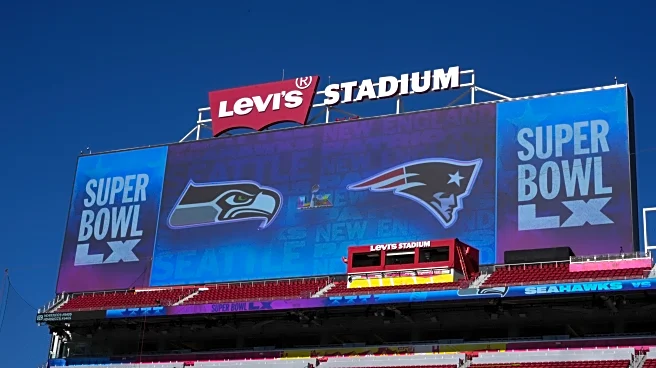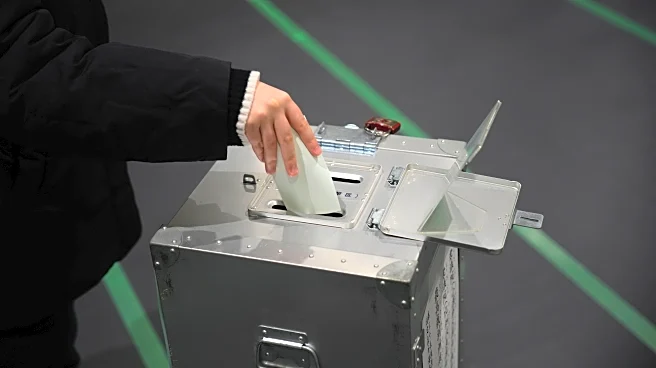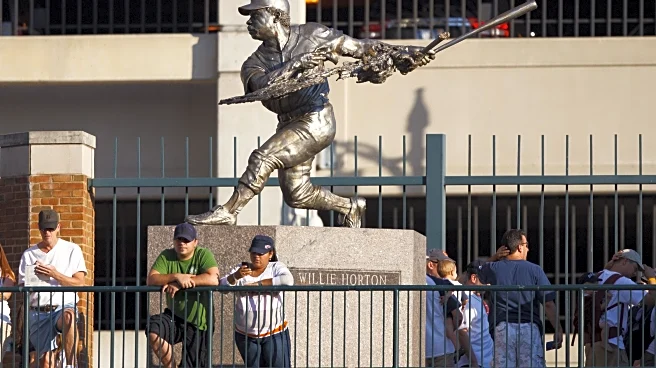What is the story about?
What's Happening?
Federal prosecutors have dropped nearly a dozen cases related to President Trump's emergency law-and-order surge in Washington, D.C. This initiative, which began last month, aimed to address crime by deploying federal agents and National Guard members. However, the strategy has faced challenges as judges and grand juries question the strength of the evidence in these cases. U.S. Magistrate Judge Matthew Sharbaugh recently dismissed two felony assault cases, raising concerns about the prosecution's approach to charging decisions. The dismissals highlight the risks associated with the surge strategy, as serious charges like assaults on federal agents and gun charges are unraveling before reaching trial.
Why It's Important?
The collapse of these cases underscores the potential inefficacy of President Trump's emergency surge strategy, which was intended to enhance public safety in Washington, D.C. The judicial pushback and refusal of grand juries to indict in several cases suggest skepticism about the evidence supporting these prosecutions. This situation raises questions about the allocation of resources and the impact on the judicial system, as well as the broader implications for law enforcement strategies in urban areas. The dismissals may also affect public perception of the administration's ability to effectively manage crime.
What's Next?
The judicial scrutiny of these cases may prompt a reevaluation of the surge strategy and its implementation. Prosecutors may need to reassess their approach to evidence gathering and case preparation to avoid further dismissals. Additionally, political leaders and law enforcement agencies might face pressure to address the concerns raised by judges and grand juries. The situation could lead to discussions about alternative crime reduction strategies and the role of federal intervention in local law enforcement.
















